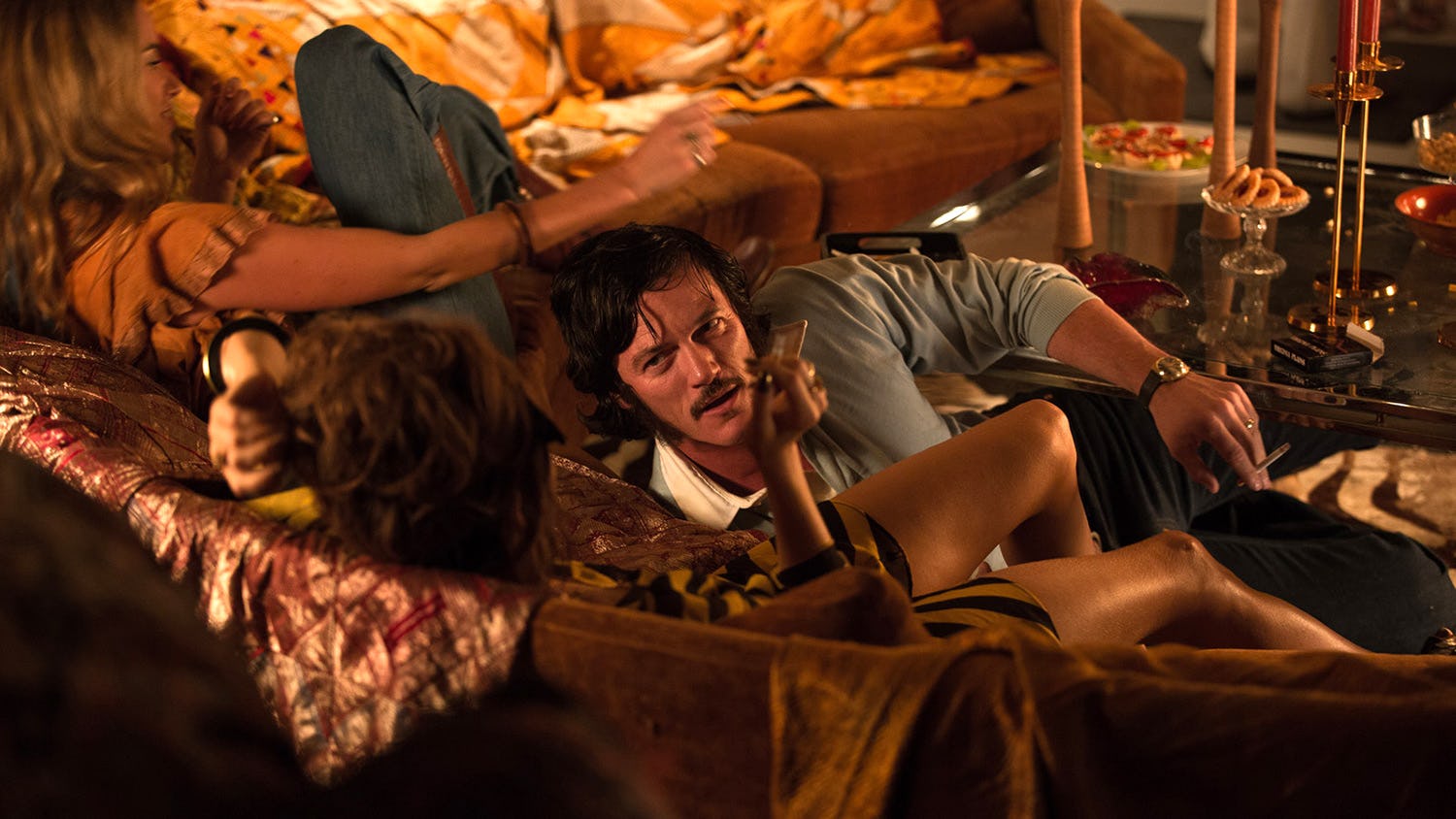
Thanks to Loki, Tom Hiddleston has proven that he can act in any time period. 2012, Ancient Rome, even at the very end of time: his cool demeanor and British charm work in any context. But Hiddleston seems especially suited to period pieces. He’s almost got a James Dean-esque aura that makes his very presence feel nostalgic. That’s why he’s perfect in a retro environment like Loki’s TVA, and why he’s so great in a 2015 thriller now streaming on Amazon Prime Video.
High-Rise, based on J. G. Ballard’s novel, follows Dr. Robert Laing (Hiddleston), a successful neurologist who moves into a massive high-rise purported to be a self-sustaining utopia by its architect, Anthony Royal (Jeremy Irons). But that’s not where the movie begins. Instead, it begins where it ends: with Laing roasting a dog’s leg.
The rest of the movie follows this 1970s idyll while the audience waits for the bomb to go off and usher in the dystopian world we already caught a glimpse of. But there’s nothing quite that blunt in High-Rise. Instead, director Ben Wheatley shows us a beautiful lifestyle that crumbles with a whimper, not a bang.
Like The Platform or Snowpiercer, the setting is a societal microcosm. Those on the lower floors resent those who literally live above them, and Laing’s attempt to navigate the isolated building’s sticky social situations sees him wind up deeply entrenched in them.
The opening narration warns, “Sometimes he found it difficult not to believe they were living in a future that had already taken place.” It’s the perfect thesis statement for a movie that’s very much a product of the novel’s 1970s setting, from the swanky cars to the thick mustache and sideburns of Laing’s neighbor Richard Wilder (Luke Evans).

But Hiddleston is the star attraction here. Laing is jaded, and the audience gets lulled into a state of false security along with him. Like Laing, we stay calm as the in-building supermarket gets ransacked and power cuts stoke resentments. By the time the action ramps up, the drastic measures he and the rest of the residents resort to feel like the only logical choice.
Watching the population of the building fall to their base instincts is like watching society collapse in real-time. It’s a microcosm for 1970s Britain, when everything seemed possible if you were ruthless and bloodthirsty enough to claim what you wanted. In case the dystopian satire isn’t clear enough, the movie ends with a Margaret Thatcher broadcast, a moment that would be painfully on the nose if the movie hadn’t spent the preceding two hours earning it.
High-Rise is an oddly perfect companion for Loki. It’s got nostalgia, dark twists, and, of course, the same star. But it explores the ennui of linear time that Loki can’t. It’s sexual, dark, and capable of effortless pivots between nuance and blunt ridiculousness. For those who want something a little smarter than Loki’s retro action, look no further.







